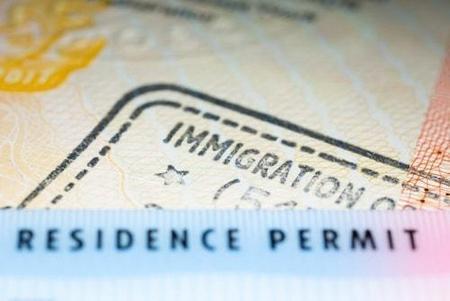Waivers of Inadmissibility
 If you are declared inadmissible, it is not necessarily the end of the proverbial line in terms of being able to enter the United States. It is possible in many instances to apply to have a ground of inadmissibility waived, though the ultimate decision is up to U.S. Citizenship & Immigration Services (USCIS) as to whether or not the request will be granted. In most instances, it is worth it to make the attempt.
If you are declared inadmissible, it is not necessarily the end of the proverbial line in terms of being able to enter the United States. It is possible in many instances to apply to have a ground of inadmissibility waived, though the ultimate decision is up to U.S. Citizenship & Immigration Services (USCIS) as to whether or not the request will be granted. In most instances, it is worth it to make the attempt.
Apply for the Right Waiver
There are multiple different types of waivers, but one must apply for the waiver that corresponds to their specific immigration status. Not everyone is able to seek a waiver from within the United States, despite common misconceptions to the contrary, but there are specific categories of people who may. In addition, not everyone may seek a waiver of all potential grounds of inadmissibility - in other words, someone in a certain immigration status may not be able to waive a certain ground, while someone in another status may be able to.
Most applicants for immigrant visas may use an I-601 waiver (if approved) to lift inadmissibility as a result of most specific grounds. This can get quite complex. For example, applicants who want to adjust status to that of a lawful permanent resident (LPR, or green card holder) may file a request for a 601 waiver to lift any ground of inadmissibility having to do with immigration fraud or previous unlawful presence, or with health-related reasons, or some - but not all - criminal grounds of inadmissibility. If someone seeking to adjust status wanted to waive a criminal ground not permitted, the waiver would be denied and they would either have to seek alternate grounds for waiver or give up.
Applying and Appealing
Applying for the waiver itself is relatively painless, though the standard one must meet in order to be granted a waiver is quite high. Generally, a person must demonstrate that a U.S. citizen or LPR member of their immediate family - usually spouses, minor children, or parents - would suffer “extreme hardship” if the waiver is denied. It is important to keep in mind that as difficult as the ‘standard’ consequences like culture shock and potential economic issues are, they are not considered ‘extreme’ for these purposes. Examples of extreme hardship might be facing persecution in the home country, the lack of specific health care necessities there, or a significant decline in the standard of living if forced to relocate (to the point where the person or family would sink below the poverty line).
If you are denied, there are few options, but they do exist. The best recourse in most denial cases is to file a motion to reopen or reconsider, or a new application entirely (depending on timing), and submit more evidence to argue for the existence of extreme hardship. Beyond this, there may be little that can be done, and it can even have unforeseen consequences if one is not careful to maintain status - under the current administration, it is possible to be placed in removal proceedings if someone spends even one day out of status.
Seek Experienced Legal Help
One mistake or accident should not keep you from your life and your family, but in some cases, it may if you are not careful. The complexity of the waiver process needs an experienced attorney, and the dedicated Chicagoland immigration lawyers at Mevorah & Giglio Law Offices can help you ensure that your waiver has the best possible chance to be approved. Call our office today to set up a free consultation.
 English,
English,
 Spanish,
Spanish,
 Polish,
Polish,
 Urdu
Urdu












 Make a Payment
Make a Payment



